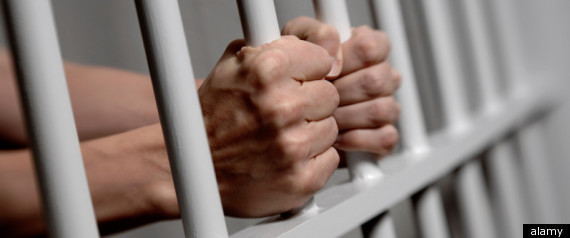 OTTAWA - The number of bona fide applicants for a criminal pardon is expected to plunge by almost half under stricter new rules.
OTTAWA - The number of bona fide applicants for a criminal pardon is expected to plunge by almost half under stricter new rules.Internal figures obtained by The Canadian Press show the Parole Board of Canada expects to evaluate about 15,000 pardon applications annually, down from 27,750.
A law passed in 2010 toughened the requirements and, in some cases, increased the waiting times for pardon applicants.
The law requires the parole board to assess the behaviour of applicants from the time of their conviction to ensure granting a pardon would not "bring the administration of justice into disrepute."
It means fewer people are expected to apply, and more will be screened out early on.
About 10 per cent of Canadians — over three million people — have a criminal record.
A pardon doesn't erase a person's criminal record, but can make it easier to get a job, travel and return to society.
A cost-benefit analysis conducted by consulting firm RIAS Inc. for the Parole Board, which administers the pardon program, says operations have changed significantly since the legislative changes.
"Board staff require more time to obtain additional information from applicants, research cases, wait for responses to queries from criminal justice participants, build files and make recommendations," says the analysis.
"In addition, board members require more time to review cases and to make decisions based on the merits of each case."
As a result, the Conservative government wants to hike the cost of seeking a pardon to $631 from the current $150, saying taxpayers should not have to subsidize the process. The move to hike the price is in the final stages of approval under the User Fees Act.
Critics say the planned fee hike will mean a tougher path for convicts trying to turn their lives around.
The Parole Board released a copy of the cost-benefit analysis informally after The Canadian Press requested it under the Access to Information Act. The study, completed last February, says that under the former legislation the board received about 37,000 pardon applications a year — 27,750 of which were complete enough to be processed.
The board anticipates 25,000 applications annually under the current legislation — only 15,000 of which will be eligible for processing.
That's because the law now demands more detailed information, including more supporting documentation, says the analysis. "Applicants may also require more time and effort to complete applications."
The estimate has not changed since the analysis was completed, said Caroline Douglas, a spokeswoman for the parole board.
"These are estimates based on historical intake, but of course, actual applications received and percentage accepted for processing will only be known with time, following any increase in the user fee."
The analysis says the total cost to the board to process a pardon application under the new legislation is actually $725 — meaning the government will subsidize $94 of each application.
The document reveals the parole board looked at alternatives to a considerable fee increase, including measures to boost productivity. However, the steps "fell far short" of what was required.
The board also considered proposing amendments to federal legislation that would have resulted in the automatic sealing of criminal records for lesser offences after a convicted person had been crime-free for five years or so, says the analysis.
This option was rejected because the board would still have had to seek a fee increase to cover costs for processing pardon applications from people convicted of more serious offences.
The analysis does not take into account another wave of changes to the pardon system, currently before Parliament, that would deny eligibility to people convicted of sexual offences against minors, as well as those guilty of more than three serious offences involving prison terms.
Original Article
Source: Huff
No comments:
Post a Comment